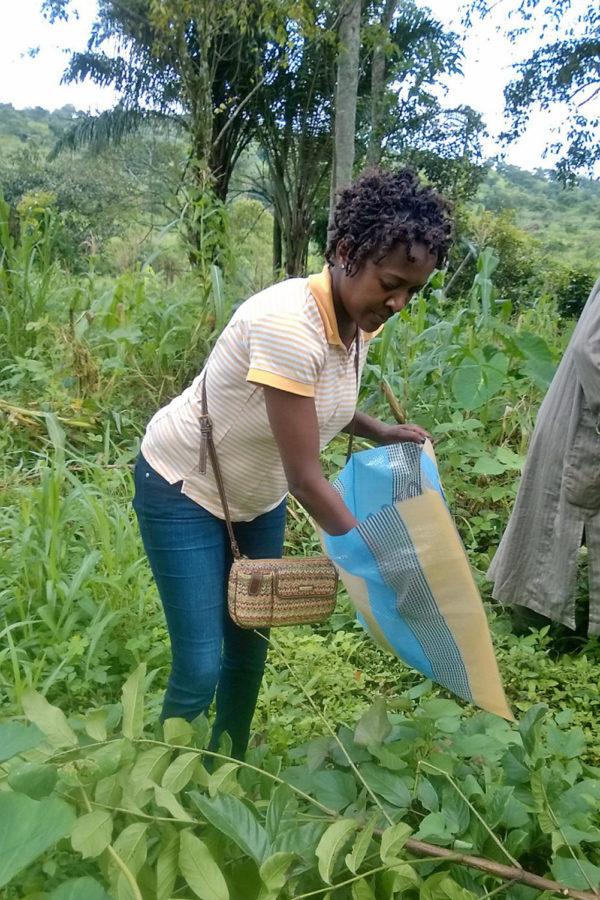Finding a cure for river blindness in Cameroon
Melanie Abongwa, graduate research assistant in biomedical sciences, has been working on solving river issues in Cameroon. Abongwa believes she has found some plant species that will help with the river blindness issues.
December 1, 2014
A new drug to help ward off river blindness is being researched at Iowa State.
River blindness, or onchocerciasis, is caused by a parasitic worm being injected into the body by a bite from a black fly. After the worm is injected they begin to move around the body causing irritation. According to the World Health Organization, symptoms of river blindness include: itching, disfiguring skin conditions and blindness.
“These black flies live by running streams,” said Dr. Richard Martin, professor of biomedical sciences. “So if you live by these running streams, and people would do so because it’s a natural water supply, they run the risk of being bitten by these black flies. Sometimes they can settle in the eye and cause damage to the eye, like blindness.”
For Melanie Abongwa, a toxicology graduate student in the department of biomedical sciences and the college of veterinary medicine, River Blindness is an all to common threat.
Abongwa comes from a village in Cameroon were river blindness is common. In some villages the infection rate can be as high as 90 percent, with 10 percent being blind, Abongwa said. The villages with the highest infection rate are those located closest to fast-flowing streams.
This personal experience is what caused Abongwa to become interested in finding a new remedy for river blindness.
There is no cure for river blindness, but there is a drug that can be used to negate the affects caused by the parasite. The World Health Organization recommends taking Mectizan, a drug that helps treat the disease, twice a year as a preventative. But for some people when they take Mectizan, their symptoms get worse.
There is no preventative drug available for river blindness.
“There is a need for an improved drug, one that doesn’t have these side effects,” Martin said.
When a family member becomes infected, it can have life changing affects on others in the family, especially young girls, Abongwa said.
“Most of the family members who are blinded by this disease [river blindness] have to stay home and somebody has to take care of them. This responsibility usually falls on the young girls, which means the girls won’t be able to go to school,” Abongwa said.
While studying at the University of Buea in Camaroon, Abongwa, with the aid of doctors Fidelis Cho-Ngwa and Godfred Ayimele, began collecting plants used as a remedy to river blindness by poor rural towns were traditional medicine is not always accessible. She brought these plants back to Iowa State, and is now studying them, trying to figure out what chemicals in them remedy river blindness.
“We want to know what chemicals are responsible for the activities we are seeing, and we also want to make sure they are not toxic to humans,” Abongwa said.
So far, Abongwa’s research has identified two plant species that can be used to aid those ailing from river blindness.
One problem with the plant remedies Abongwa noticed when she was in Cameroon, was that the dosages were not being measured accurately. The plants were being applied as a paste or eaten, so the dosage was never quantified. Now that Abongwa has identified some plant species, she hopes to be able to create an accurate dosage to be used.
Martin sees this research as very important. He said that what they are doing is trying to find a cure for neglected tropical diseases.
“There are a number of diseases, that because they are not significant in the developed world, people don’t give a rip about them. These parasite diseases are one example of these neglected tropical diseases,” Martin said.
Along with Martin, Alan Robertson, associate professor of biomedical science, supervises Abongwa. The National Institutes of Health, and the Schlumberger Foundation, which awards fellowships to women from developing and emerging economies who pursue Ph.Ds. in STEM programs, also fund Abongwa’s research.







